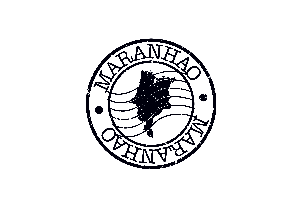Lesson 7:
Maranhão: a culture pot
Maranhão provides an unforgettable cultural experience thanks to its rare mixture of African, Portuguese, Indigenous, French and Dutch heritage. It’s a place that’s culturally partly north and partly northeast. The result of this is a joyful, partying and receptive population, who revere their religious beliefs whilst keeping their folklore alive.
Maranhão is a party all year round!
Tambor-de-Crioula
Granted Brazilian Intangible Heritage status by IPHAN, every beat of the Tambor-de-Crioula is a thrill. With its African heritage manifested in dance, song and touch, the drums can be enjoyed outdoors, in the squares, houses, and interior yards during any season, but especially during the festival times of June and Carnival.
The coreiras, the name for the girls participating in the game, are vibrant in their colourful clothes. They draw attention to the "umbigada,” a belly-to-belly encounter, the password for a new dancer to join the group, all choreographed to the intoxicating soundtrack of drums played by the men.
O Tambor de Mina
This religious event of African origin originated in São Luís, and from there spread to other Brazilian cities. Performed in terraces, the event celebrates entities known as voduns, whom are honoured during discrete rituals, sometimes only visible in small details in the participant’s clothes. It’s common for religious and popular celebrations to be carried out in open yards, such as the Festa do Divino Espirito Santo and the Festa de São Benedito. On days like this, the churches open their doors to guests.
Festa do Divino
Celebrated throughout the month of May, especially in Alcântara and São Luís, the Festa do Divino Espirito (Feast of the Holy Spirit) is a fascinating mixture of devotion to the Divine with tributes to the Empire. The participants run chanting through the streets of the city until they reach the home of the emperor. The emperor then receives his honour with a particular dance and songs of praise to the Divine. All to the sound of the instruments played by women known as "caixeiras” who are generally black women of more than 40 years old who live on the outskirts of the city). At the end of the festival, drinks and sweets are served to those who participated.
São João and Arraiais Festival
During the month of June, the city of São Luís is transformed. The main neighbourhoods find themselves filled with structures containing stages for presentations of traditional dances and regional singers and straw huts where food typical to the region can be purchased.
Carnival in Maranhão
The Carnival of São Luís is a real mixture of popular games, colours, rhythms and fun, which liven up the city streets. The festival is spread across the city, though mostly in the circuit of streets in São Pantaleão, in the centre of the city, and in the Madre Deus neighbourhood - an important hub of popular culture. There is also a parade from the Samba Schools and the Electric Trios (group of musicians performing on a truck) along Avenida Litorânea, the main avenue.
Bumba-Meu-Boi
In a show of colours, dances and rhythms, Bumba-Meu-Boi, a festival that has lasted since the 19th century, is the utmost expression of Maranhão popular culture. Raised to the status of Intangible Heritage of the Brazilian people, its origins are unknown, but African and European cultural elements are clearly evident. The preparations last all year, but the magic happens in July, attracting and delighting crowds of new and returning visitors.
The Bumba-Meu-Boi groups who present their shows throughout the State of Maranhão are numerous, differentiated by their diverse accents. Each one has their own traditional characteristics, seen in their clothes, chosen instruments, and the rhythms and flow of their music and choreographies.
Reggae
A musical genre with Jamaican origins, reggae became popular in Maranhão in the 1970s. Reggae Roots, danced in choreographed groups or in couples, is the most popular among the movement’s followers in the cities surrounding Maranhão. In the capital São Luís, there are several reggae clubs and specialised bars.
